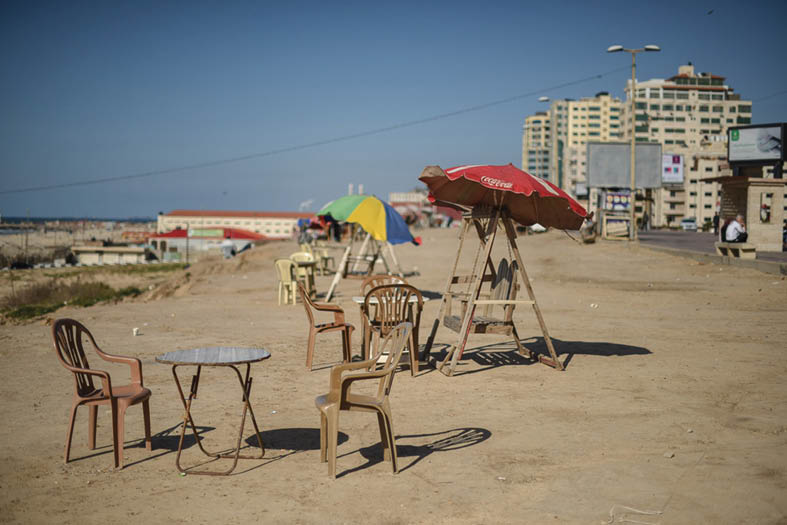As if we are now standing on a gilded sandy beach looking at a barrage of tsunami waves heading towards us, we stand motionless, spellbound. For the moment, all is tranquil. At first glance things seem to be going well, but the truth is that this tranquility is fear in disguise, fear of a pitiless fate brought by the coming waves.
Like Palestinian society in general, Palestinian civil society stands on the verge of a political and economic calamity. The COVID-19 pandemic has given momentum to the approaching tsunami. On the one hand, Palestinian society is facing an unprecedented national situation as the government of Israel is resolved to carry out the annexation plan and liquidate the Palestinian cause. In fact, Israel sees in the COVID-19 crisis a fortuitous opportunity to carry out its plan. On the other hand, we all know that we are heading into a COVID-19-induced economic crisis that has come to us unexpectedly since we are entirely dependent on donors. The Palestinian economy, as well as the Palestinian government and civil society, is largely dependent on foreign aid and tax revenues, which are controlled and used by Israel for political blackmail, in addition to the fragile labor in the Israeli markets that has been severely affected by COVID-19. It merits mention also that the Palestinian economy is consumptive and not productive.

We can imagine that the COVID-19 pandemic has affected donor countries, forcing them to realign their priorities in order to overcome the current crisis. This, however, does not mean that donor countries will cease to play an international role and continue their aid, given that such a role is a source of power for them and enables them to have an impact on the international political landscape. Nevertheless, the COVID-19 crisis could affect the volume and type of aid provided to the Palestinians, as aid will naturally be allocated to food and health needs. As a result, the Palestinian question will be reinvented as a difficult humanitarian problem even as the government of Israel works during this critical time to implement the deal of the century!
Research, culture, education, and arts are unattractive subjects for foreign donors, and for Palestinian institutions, they are a luxury that can be shelved for the time being.
MADAR, like all other research centers, is having a hard time dealing with the Palestinian question as a humanitarian problem both on the local and international levels. But the coronavirus crisis will reinforce this trend, and therefore it is obvious that we are heading toward a very serious crisis that will not be resolved without developing national mechanisms to transform the Palestinian economy from a dependent consumptive economy into an independent productive economy.


